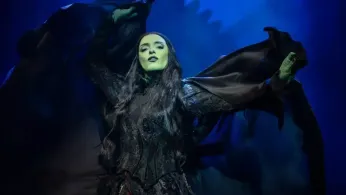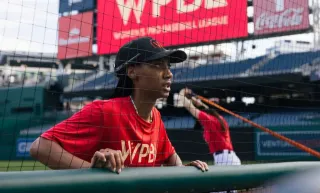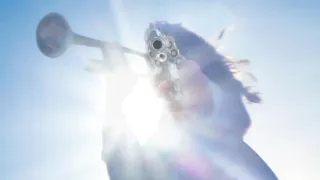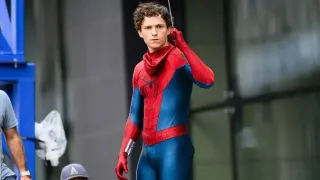
3 hours ago
Broadway’s “Wicked” Cast Barred from Promoting Film Adaptations
READ TIME: 3 MIN.
The film adaptations of “Wicked” have generated significant excitement within both the musical theatre and LGBTQ+ communities, but new information reveals that Broadway’s own “Wicked” cast is strictly prohibited from participating in the films’ promotion. This policy, only recently brought to public attention by former Elphaba actress Mary Kate Morrissey, has spotlighted the complex intersection of stage and screen, and prompted new conversations about creative expression and community engagement in the entertainment industry .
Mary Kate Morrissey, who played Elphaba on Broadway from March 2024 to March 2025, disclosed via social media that while she was part of the Broadway company, she and her fellow cast members were explicitly told they could not participate in any promotional activities for the “Wicked” film adaptations. "We couldn’t influence. There was no creating happening around that. We had to say no to everything," Morrissey explained in a recent TikTok video . She clarified that now, as a former cast member, she is free to engage with fans and share her thoughts on the films, but this restriction did not apply while she was under contract.
This revelation has surprised many in the theatre community, as “Wicked” has historically been known for vibrant cross-promotion between its stage and screen iterations. The current policy stands in contrast to previous Broadway marketing initiatives, such as “Behind the Emerald Curtain,” which allowed cast members to interact with fans and offer behind-the-scenes insights .
While it is not uncommon for stage productions and film adaptations to maintain separate promotional strategies, the blanket ban on Broadway cast and crew involvement has drawn criticism from industry observers. Some see the policy as an attempt by the film’s producers to tightly control the narrative and public image of the new movies, potentially at the expense of the actors and creative professionals who have helped keep “Wicked” a global phenomenon for over two decades .
Others argue that this approach may inadvertently alienate the musical’s dedicated fanbase, many of whom have followed the careers of Broadway’s Elphaba, Glinda, and other beloved characters through stage, touring, and now cinematic performances. The policy also comes at a time when the entertainment industry at large is reckoning with issues of censorship, creative ownership, and the rights of artists to engage with their work beyond the confines of contractual obligations .
“Wicked” holds a special place in LGBTQ+ culture, celebrated for its themes of acceptance, the power of chosen family, and the importance of embracing one’s true self. Many LGBTQ+ audience members and artists have found resonance in Elphaba’s journey of self-discovery and transformation, and the show’s tradition of uplifting diverse voices has been a cornerstone of its enduring appeal .
The decision to limit the Broadway cast’s ability to publicly engage with the films is particularly significant for LGBTQ+ fans, who often rely on social media, interviews, and convention appearances to connect with their favorite performers and find community. For many, these interactions are not just about celebrity, but about visibility, affirmation, and solidarity within a larger cultural movement.
Mary Kate Morrissey herself has been vocal in her support for LGBTQ+ causes and has spoken candidly about the importance of authentic representation both on and off stage . Her willingness to discuss the promotional ban has been met with gratitude from fans who value openness and transparency in an industry sometimes marked by secrecy.
As the next “Wicked” film prepares for release, fans and industry insiders alike will be watching closely to see whether the promotional ban will remain in place, or if evolving industry norms will lead to greater collaboration between Broadway and Hollywood. With the ongoing popularity of “Wicked” tours both in the U.S. and internationally, and a growing movement for inclusion and artist empowerment, the story of “Wicked” continues to be as dynamic and relevant as ever .
For now, the prohibition underscores the complexities of intellectual property, artistic labor, and the ever-shifting boundaries between stage and screen. As Morrissey and other former cast members begin to share their own perspectives on the “Wicked” films, the conversation is certain to evolve—fueled by a passionate and deeply invested global fanbase.






